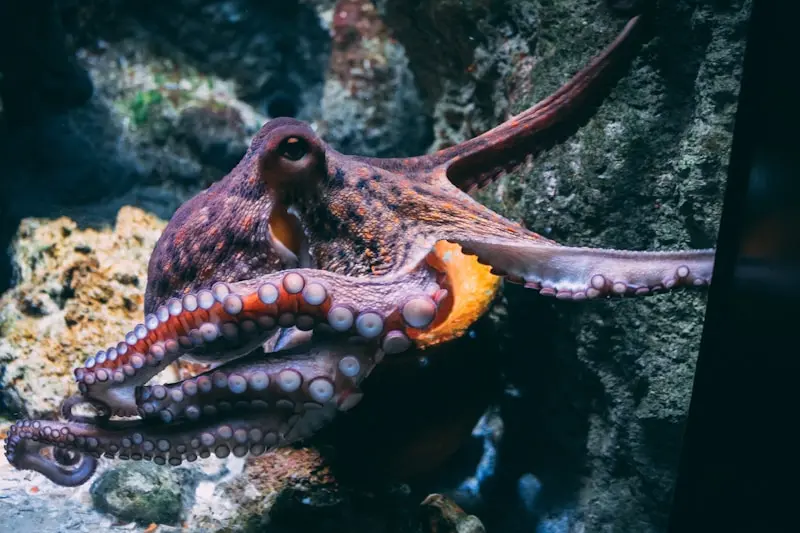
Octopuses are remarkable marine creatures known for their ability to change both the size and color of their bodies. Scientists attribute these animals’ incredible adaptability to their highly developed nervous system. Octopuses possess a centralized brain and a complex network of neurons distributed throughout their tentacles. Previous studies have revealed a connection between the intelligence of these creatures and genes that are also active in humans. New observations provide even more similarities: these mollusks experience a sleep state akin to that of humans.
Octopuses have two phases of sleep, much like people. Researchers from the Okinawa Institute of Science and Technology noticed that octopuses exhibit two stages of sleep—calm and active—similar to the rapid eye movement (REM) sleep found in mammals. As noted by research team leader Sam Reiter, it was long believed that only vertebrates experience two distinct sleep states. Recent studies confirm that octopuses share this trait with humans. Their calm sleep periods are interspersed with brief bursts of intense activity. During these episodes, their tentacles and eyes twitch, their breathing quickens, and their skin flashes vibrant colors.
The research team, led by Reiter, began their study by testing the octopuses’ reactions to physical stimuli to determine whether they were asleep or awake. Scientists found that a stronger stimulus was required to elicit a response during the active or calm sleep stages compared to when the animals were awake.
They also observed that octopuses entered the active sleep phase earlier and more frequently if they were disturbed while trying to sleep or during a nap. This compensatory behavior suggests that the active sleep stage is crucial for the normal functioning of these marine creatures.
Additionally, it was discovered that during calm sleep, octopuses exhibited brain waves known as sleep spindles, similar to those observed during REM sleep in mammals. The exact function of sleep spindles remains unclear, even in humans, but they are believed to help consolidate memories and enhance learning. Using cutting-edge microscopy, the research team concluded that these brain waves originate in areas of the octopus brain associated with learning and memory, a function also characteristic of humans.
Researchers noted that approximately once an hour, octopuses entered the active sleep phase for about one minute. During this time, their brain activity mirrored that of when they were awake, much like what occurs during REM sleep in humans.
Do octopuses train in their sleep, dream, or have visions? They possess the ability to control pigment cells in their skin, allowing them to create various skin patterns for camouflage, social interactions, and deterring predators. Previously, scientists observed dramatic color changes in octopuses that suggested dreaming. According to Interesting Engineering, the research team monitored these color changes using an 8K ultra-high-definition camera, enabling them to see how each individual pigment cell behaved to create an overall pattern.
Researchers noted that during active sleep, octopuses cycled through the same skin patterns they use for camouflage while awake. The scientists propose several theories to explain the similarity between the awake state and active sleep in octopuses. One theory suggests that these creatures practice their skin patterns during sleep to maintain their pigment cells and enhance their camouflage behavior.
A more intriguing theory posits that octopuses may relive and learn from their active experiences (such as hunting and hiding) and reactivate the skin patterns associated with each experience. In other words, they might be visualizing something akin to a dream or, like humans, experiencing dreams.
As Reiter points out, humans can recount the dreams they have upon waking. The skin patterns of octopuses, according to the scientist, act as a visual readout of their brain activity during sleep. However, it remains unclear which of these possible explanations is correct. Therefore, research into octopus sleep will continue to uncover new facts about these extraordinary marine animals.

